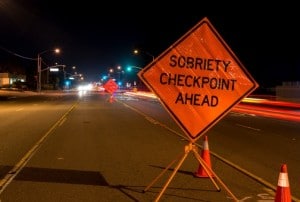Learn how to use the opportunities afforded by a DMV administrative hearing effectively

1. You Have 10 Days to Request a Hearing
In order to contest your license suspension, you must request a DMV hearing within 10 days of your arrest. If you do not, you will not be able to get a hearing, and your license will automatically be suspended 30 days after your arrest. You can request a hearing over the telephone by contacting your local DMV Driver Safety Office. A list of those offices is available at: https://www.dmv.ca.gov/fo/fotocds.htm.If Chambers Law Firm represents you, we will request the hearing on your behalf.
2. Request Discovery Immediately
As soon as your hearing is scheduled, request discovery from the DMV. Remember, the DMV is essentially a “prosecutor” in this hearing. It is seeking to suspend your license. So it is obligated to turn over its evidence to you. Make a request in writing for the “discovery” in your case. This will give you an opportunity to review the arrest report, blood alcohol results, and other evidence the DMV intends to introduce against you during the hearing. With that information in hand, you can formulate how you are going to try to win the DMV hearing.
3. Serving Subpoenas Can Help Gather New Evidence
At the same time that you request discovery from the DMV, serve subpoenas on the police agency and the relevant crime lab. These subpoenas can be used to ask for additional documents beyond those the DMV intends to use at the hearing. For example, if you took a blood test, you can subpoena all of your lab work, chromatography, and other materials to determine whether your blood alcohol analysis was done properly. You can also get records to determine whether the machines (blood or breath) were being properly maintained and calibrated for accuracy. If thereare discrepanciesrevealed by these records, you can have a forensic toxicologist provide testimony that the blood results cannot be relied upon as being accurate.
4. Arresting Officers Can Be Cross-Examined at DMV Hearings
Consider serving a subpoena on the arresting officer to have him or her present at the hearing. A fee of $275 must be paid to the law enforcement agency in order to have the officer appear, but it may be worth the cost. Your attorney can cross-examine the officer and may uncover weaknesses in the case, sloppy investigation techniques, or improper testing procedures for the breath or blood test.
5. The Testimony of a Forensic Expert May Be Vital
Discuss with your attorney whether to hire a forensic expert to testify at the hearing about the inaccuracy or unreliability of the blood or breath test. At the DMV hearing, there are only three issues to be decided:
- Did the police officer have reasonable cause to believe you were in violation of the drunk driving laws;
- Was your arrest lawful; and
- Were you driving a vehicle with a blood alcohol level of .08 or greater.
Often, the hearing comes down to this last issue, and a forensic expert may be able to provide evidence to poke holes in the test result.
Chambers Law Firm can assist you in putting together the most thorough and aggressive defense possible in the DMV hearing, and pave the way for fully developing your defense in your criminal case at the same time.




